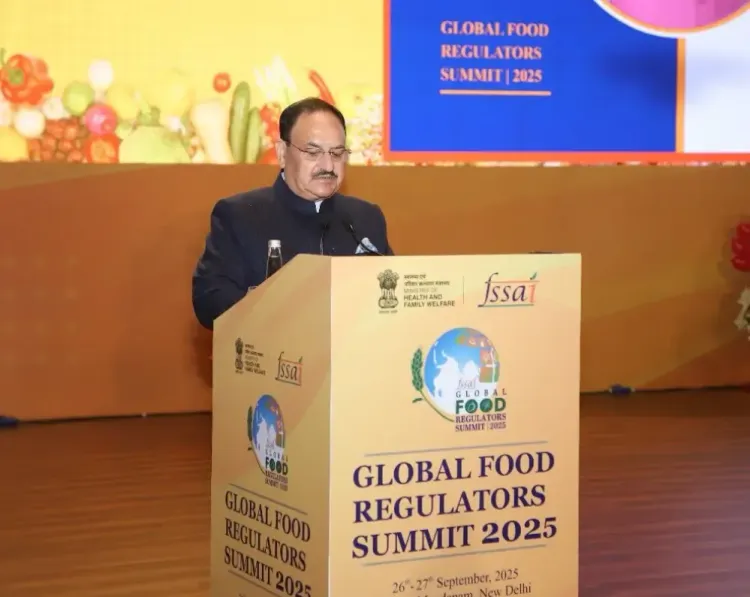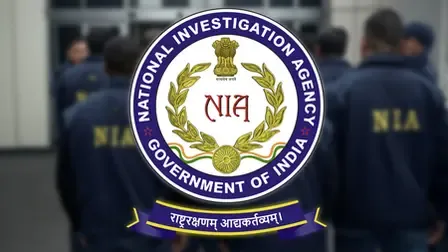How Did FSSAI Become a World Leader in Food Safety?

Synopsis
Key Takeaways
- FSSAI's leadership in global food safety standards.
- Development of 14 global standards for food safety.
- Partnerships with multiple countries to enhance food safety.
- Implementation of mobile testing labs and rapid testing kits.
- Importance of food safety for public health.
New Delhi, Sep 26 (NationPress) The Food Safety and Standards Authority of India (FSSAI) has established itself as a global frontrunner in food safety and standards, as noted by Union Minister of Health and Family Welfare JP Nadda on Friday.
At the third Global Food Regulator Summit held at Bharat Mandapam, Nadda emphasized that the summit highlights India's dedication to international food safety, aiming to bolster global cooperation to ensure that food systems are safe, resilient, and inclusive.
He pointed out the vital contributions of FSSAI in formulating global food safety standards, which include the development of rapid testing kits and mobile laboratories for food testing.
“FSSAI has emerged as a global leader in food safety and standards, significantly influencing the international community via the Codex Alimentarius Commission. India, through FSSAI, hosts the Codex Committee on Spices and Culinary Herbs, has developed 14 global standards, and acts as the regional coordinator for Asia, promoting street food safety and regional collaborations,” stated the Union Minister.
“India has gained vital Codex support for standards concerning millets, cashew, and advanced supplement and functional food standards,” Nadda added.
Highlighting FSSAI’s leadership in global partnerships, he mentioned collaborations through MoUs with countries such as Bhutan, Argentina, Chile, New Zealand, Brazil, and recently, Australia.
“Domestically, FSSAI has upgraded food standards, approved rapid testing kits, and expanded its laboratory infrastructure, including mobile testing units. FSSAI has also enhanced the safety of food imports by recognizing accredited international labs, providing provisional clearances for importers, and improving transparency through integration with SWIFT and iSCATE systems,” Nadda remarked.
He further emphasized the importance of food safety, stating that “the quality of our diet impacts the quality of our body, mind, and life.”
The Health Minister described food as “a powerful force” and stressed the necessity for improved compliance to foster global trust.
Highlighting the importance of food safety, he remarked that the global exchange of food products can significantly affect the health and well-being of populations.
“When countries engage in the global exchange of food products, they are not just trading goods. It impacts the health and well-being of their citizens,” Nadda asserted.
“Any failure in food safety can lead to severe public health crises, disrupt trade, and tarnish the reputations of businesses and nations. Therefore, food safety is not merely about compliance, but fundamentally about building trust within global food systems,” concluded the Health Minister.









